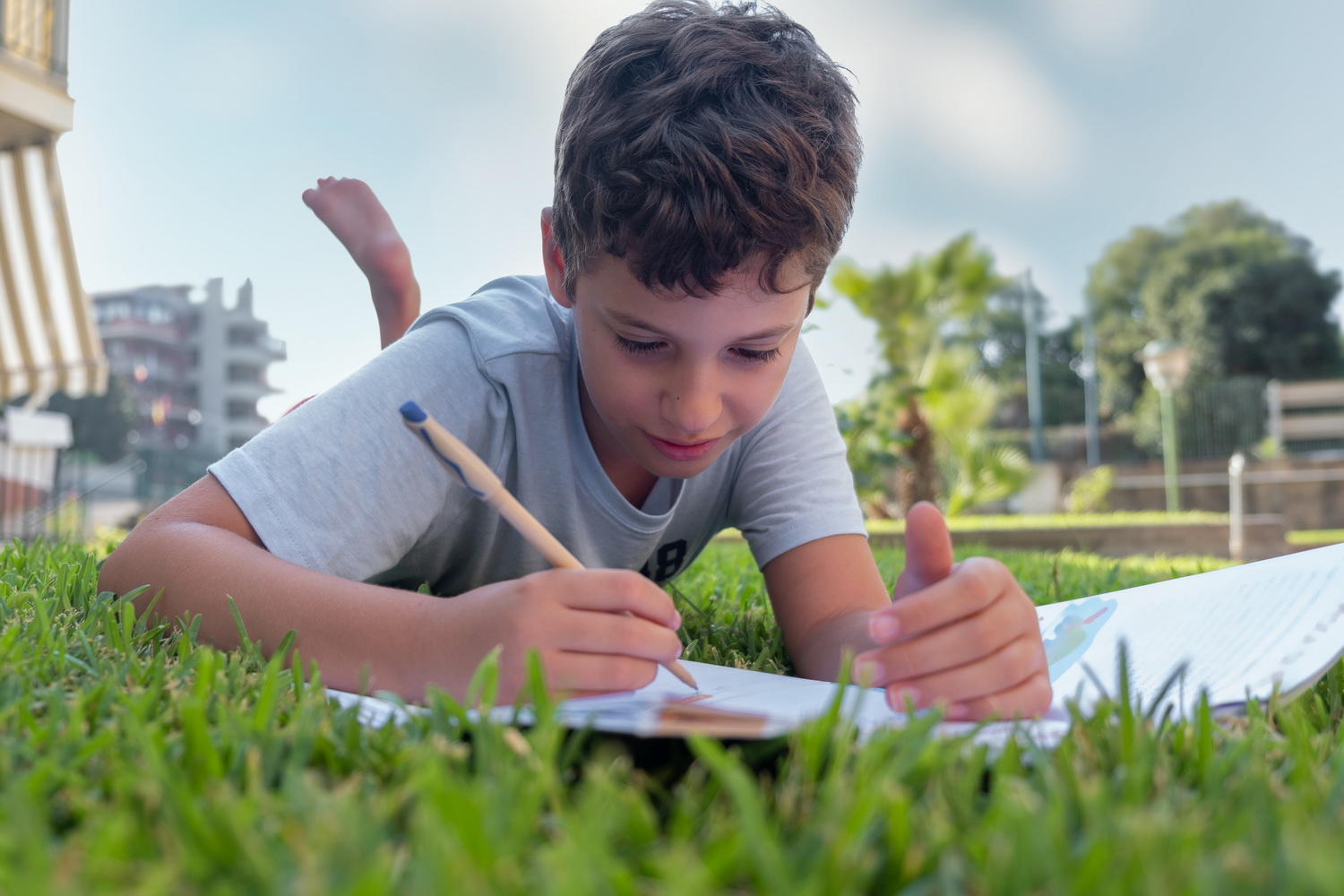Vocabulary expansion Reading Fiction Worksheets for Ages 3-9
14 filtered results
-
From - To
Enhance your child's vocabulary through our Vocabulary Expansion Reading Fiction Worksheets, designed for ages 3-9. These engaging and educational worksheets feature captivating stories and creative exercises that help kids learn new words while enjoying fiction. Imagery-rich texts and kid-friendly activities make vocabulary building fun and effective. Ideal for early learners, these worksheets develop critical reading and comprehension skills, preparing your child for academic success. Convenient and printable, they cater to various age groups and skill levels, ensuring a personalized learning experience. Visit our website now to explore a wide range of worksheets that turn reading into an adventure!


Rhymes in Poems Worksheet
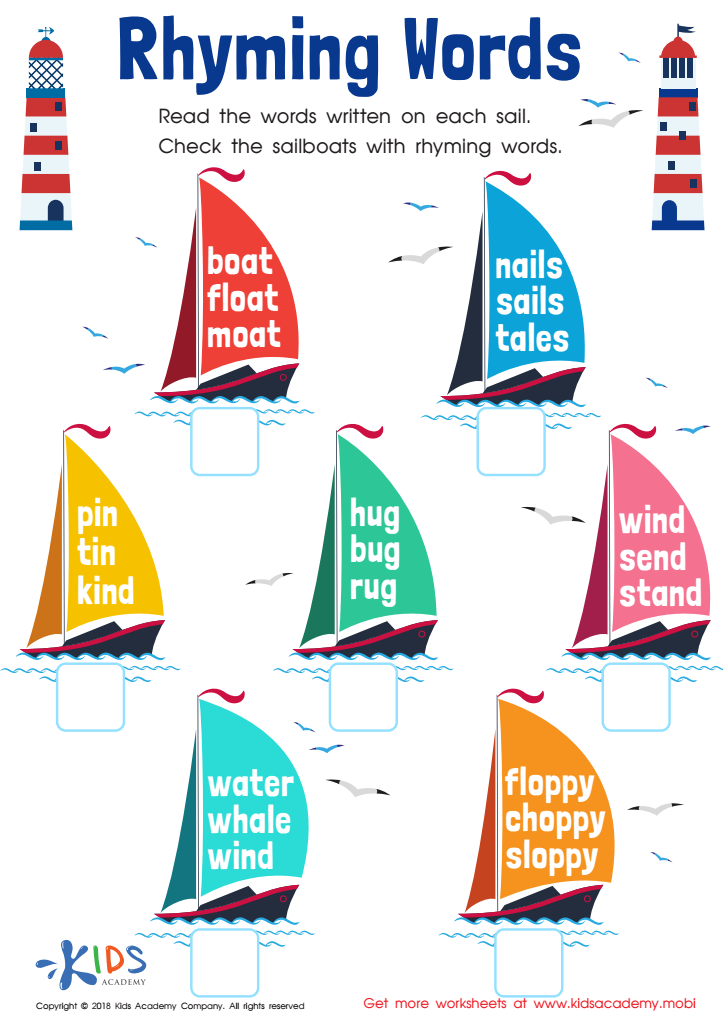

Rhyming Words Worksheet
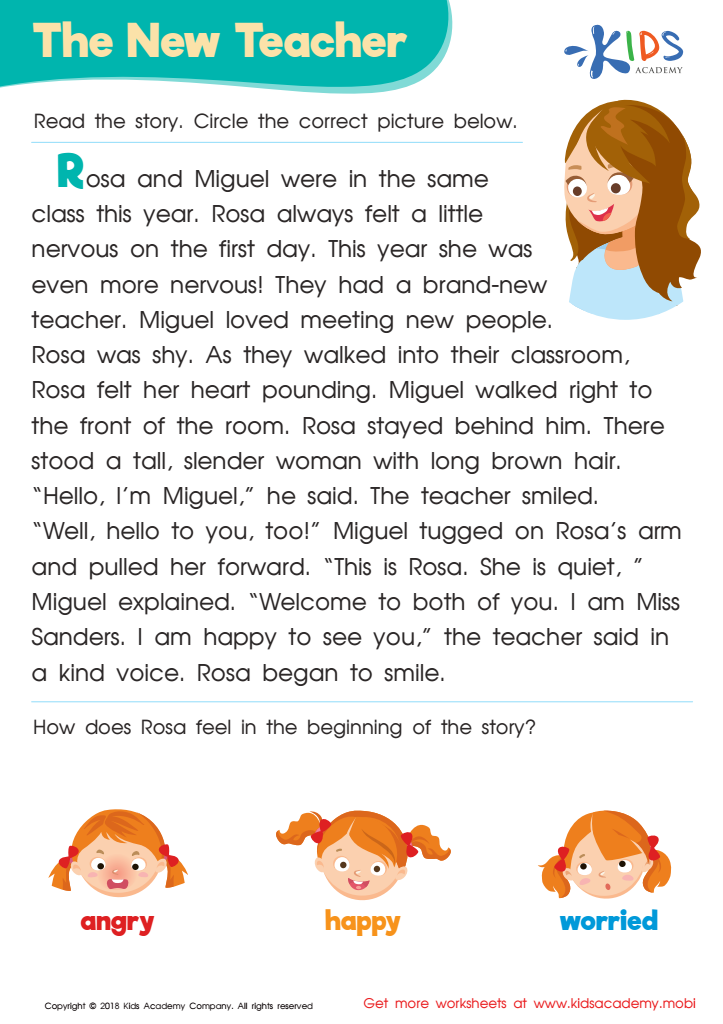

The New Teacher Worksheet
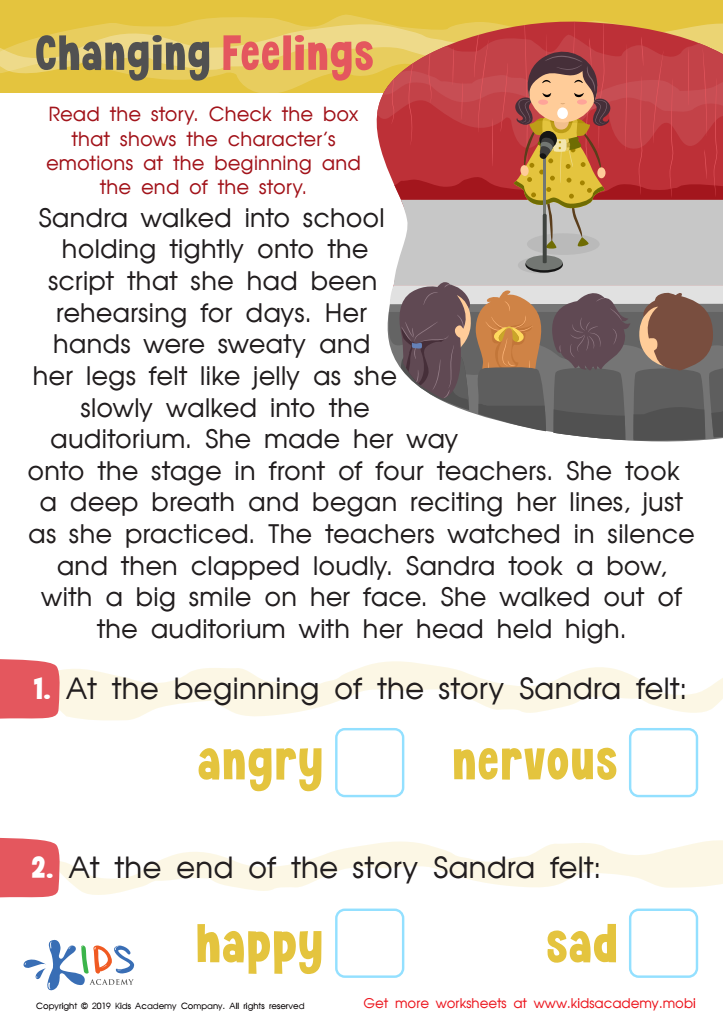

Changing Feelings Worksheet
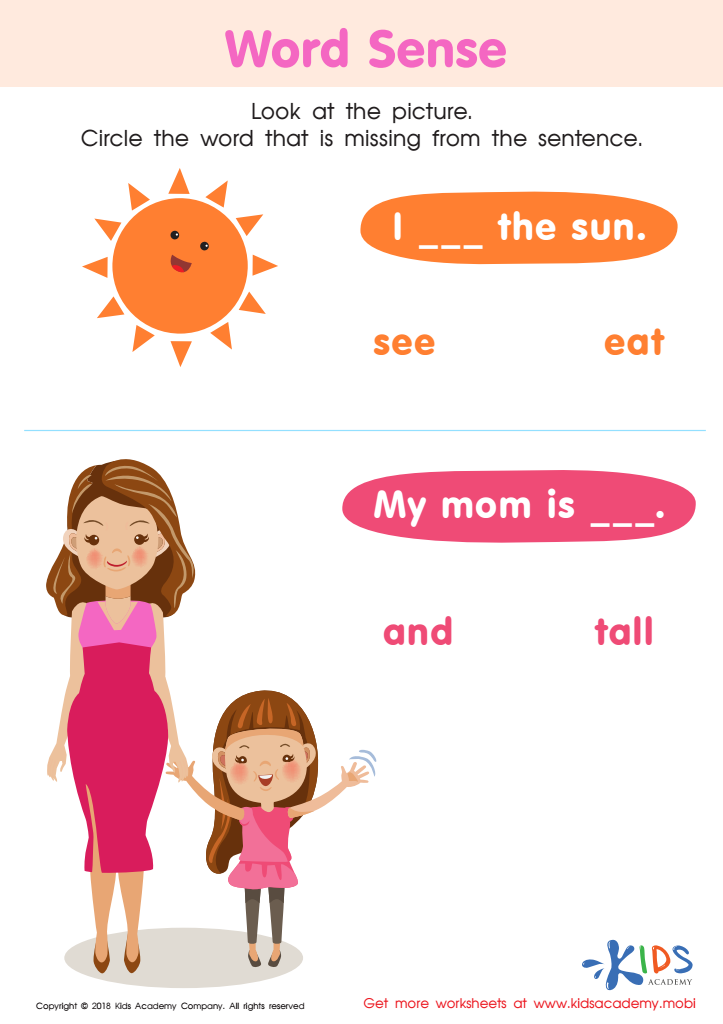

Word Sense Worksheet
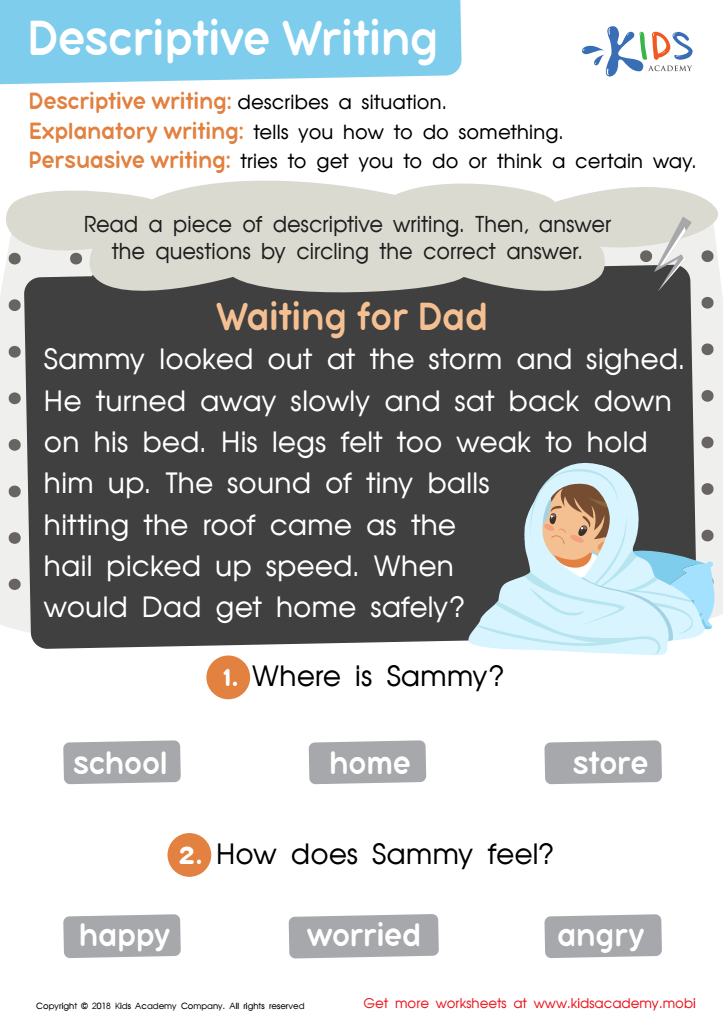

Descriptive Writing Worksheet: Part 2
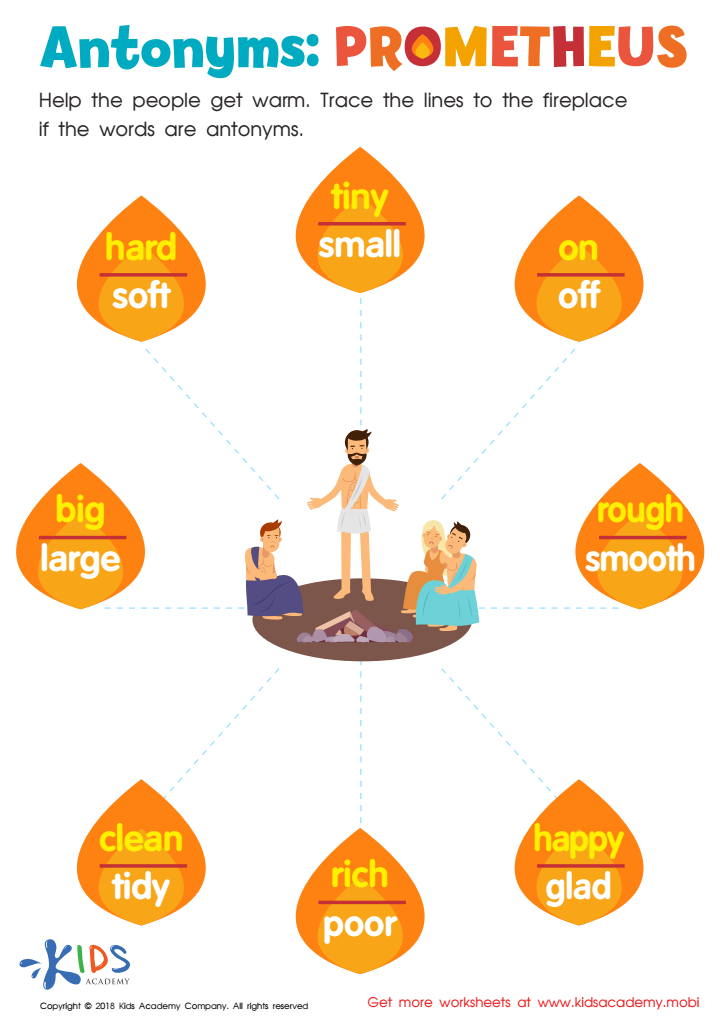

Antonyms: Prometheus Worksheet
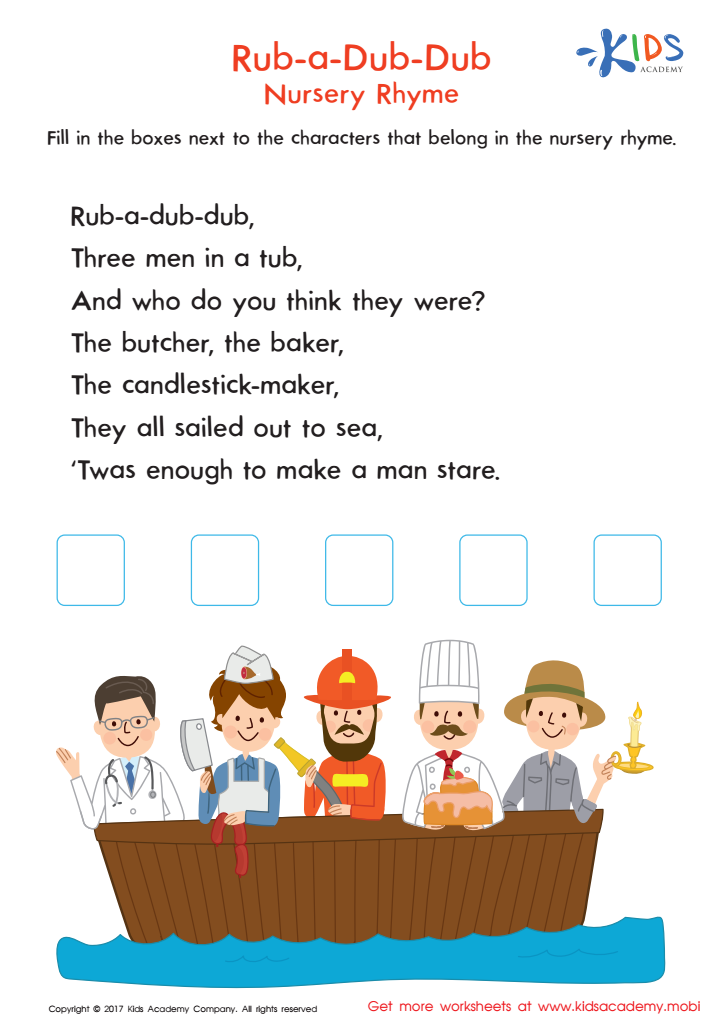

Rub a Dub Dub Printable
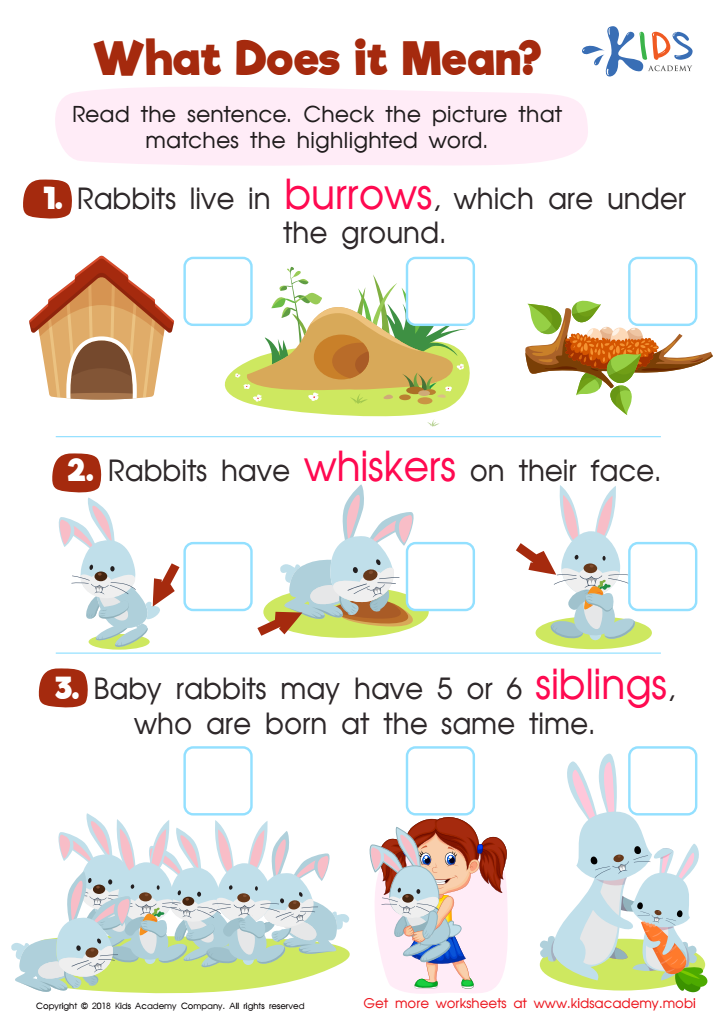

What Does It Mean? Worksheet
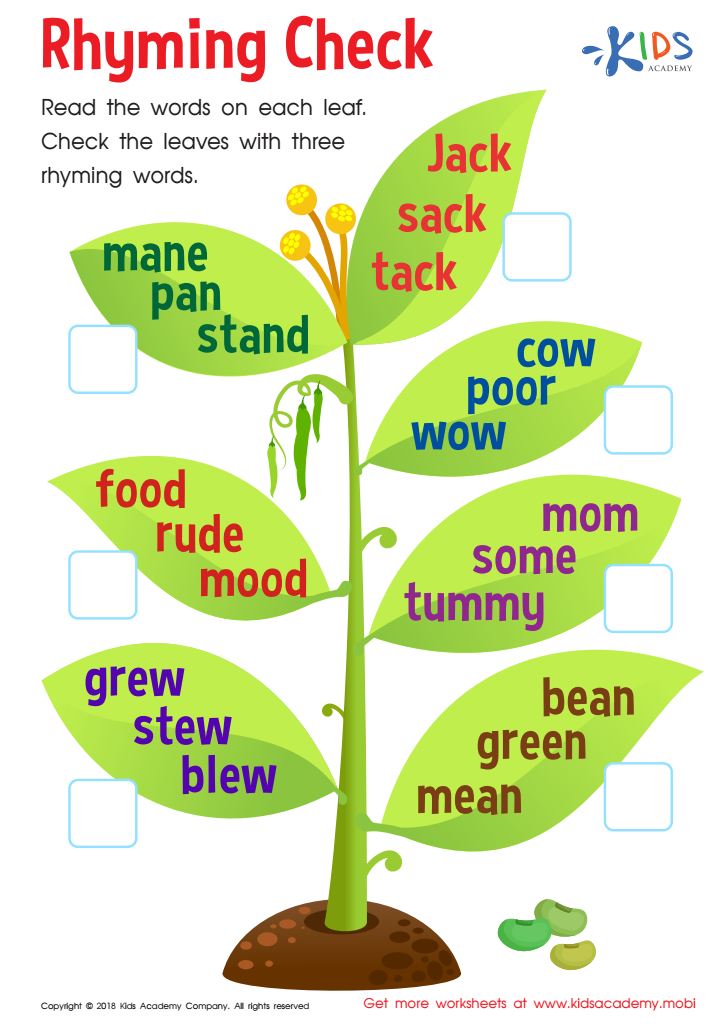

Rhyming Check Worksheet
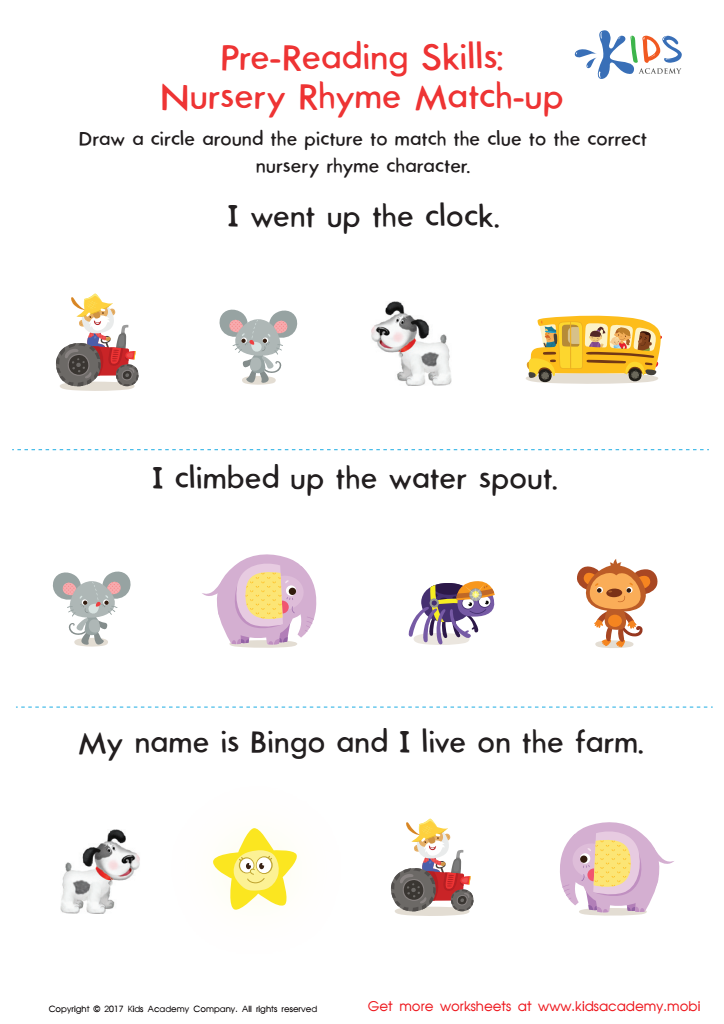

Nursery Rhyme Match–Up Worksheet
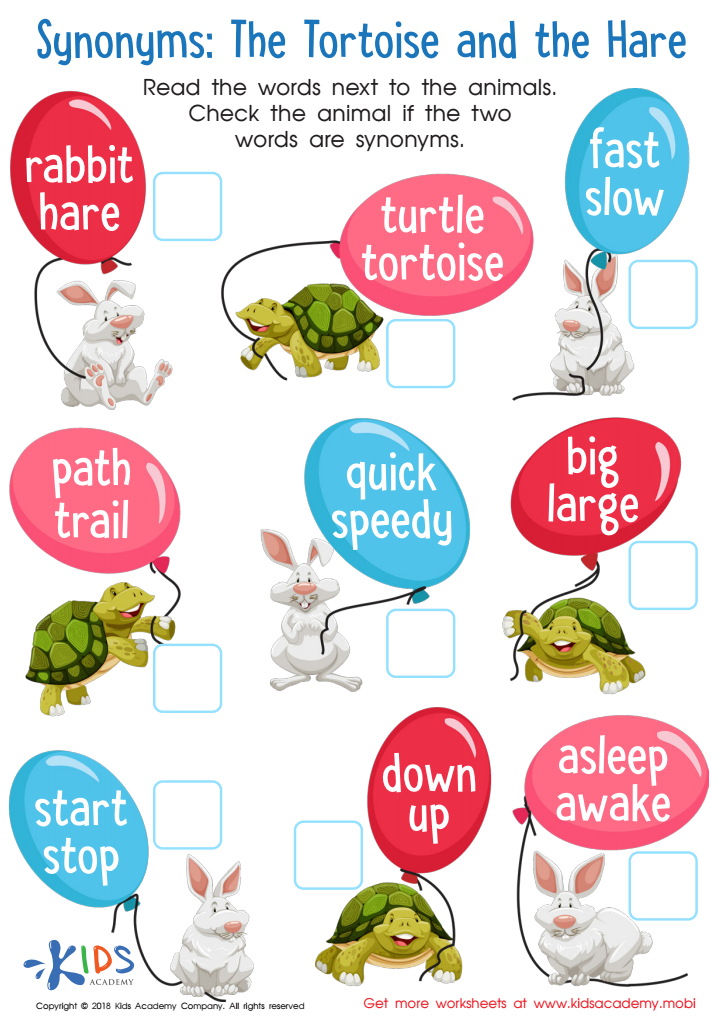

Synonyms: The Tortoise and Hare Worksheet
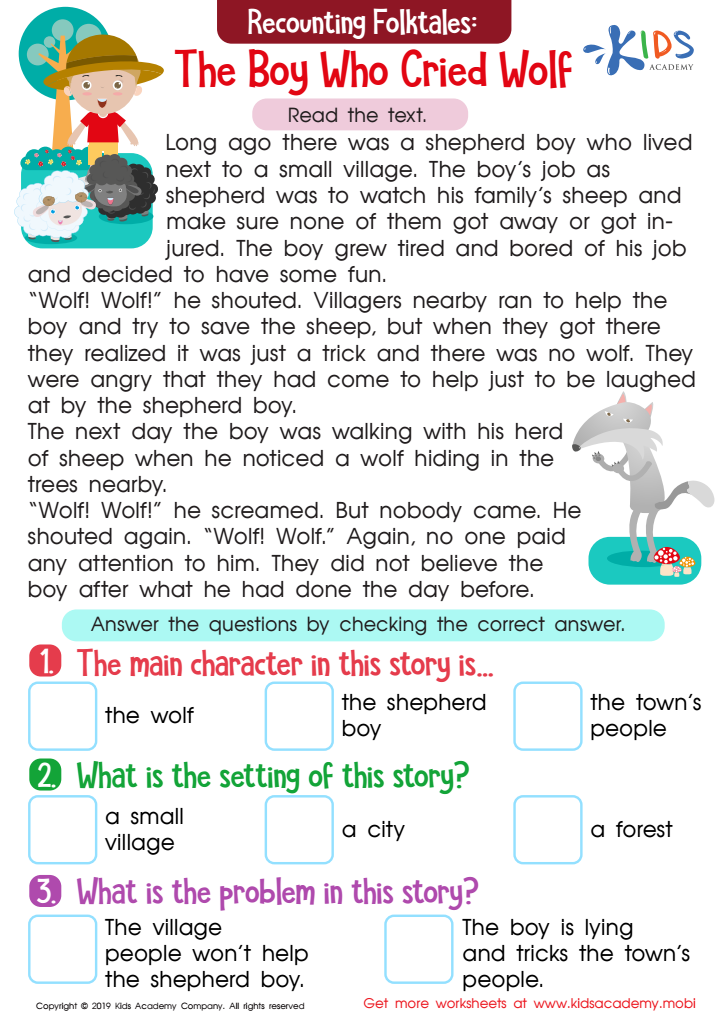

The Boy Who Cried Wolf Part 1 Worksheet
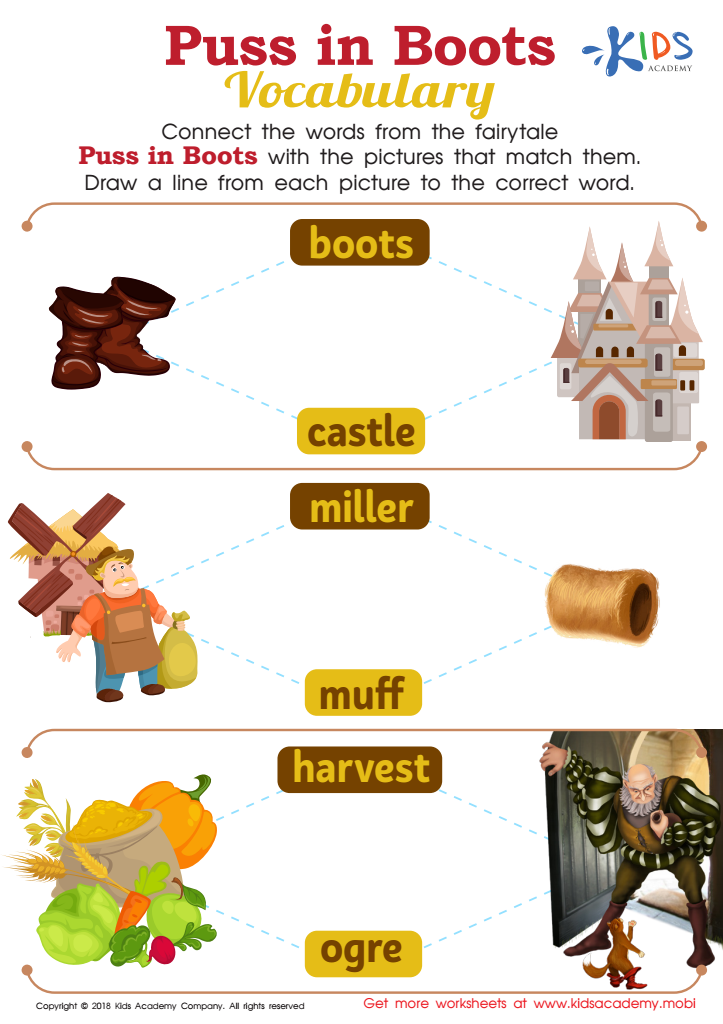

Puss in Boots Vocabulary Worksheet
Absolutely, expanding vocabulary through reading fiction for ages 3-9 is vital for several reasons. Young children are at a crucial stage in language development, and introducing them to a rich vocabulary during these formative years sets a strong foundation for their future learning.
Firstly, a broad vocabulary enhances communication skills. When children know a wide range of words, they can express themselves more clearly and effectively, both verbally and in writing. Reading fiction exposes them to diverse language, expressions, and sentence structures that they might not encounter in everyday conversation.
Secondly, teaching kids new words through stories makes learning more engaging and meaningful. Characters, settings, and plots provide context that helps children understand and remember new vocabulary. They are more likely to retain words that have a narrative attached to them.
Additionally, a robust vocabulary is closely linked to improved reading comprehension skills. As children progress in school, reading comprehension becomes key to learning across all subjects. Children who can understand and use a rich vocabulary are better equipped to grasp complex concepts and follow detailed instructions.
Lastly, exposure to different worlds and cultures in fiction broadens a child's perspective. It enhances empathy and cultural awareness, which are important social-emotional skills.
In essence, vocabulary expansion through reading fiction for young children enriches their language, cognitive, and social skills, laying a groundwork for lifelong learning and personal growth.

 Assign to My Students
Assign to My Students






